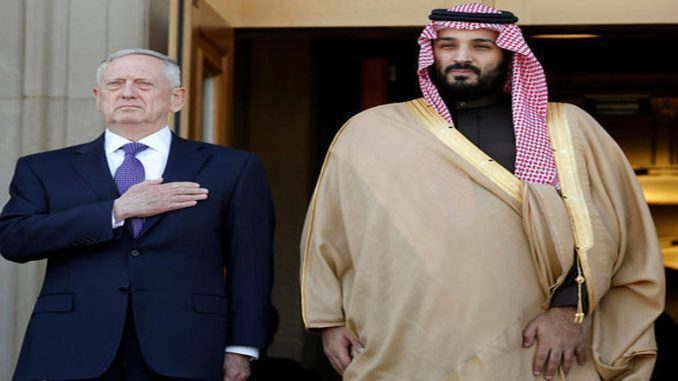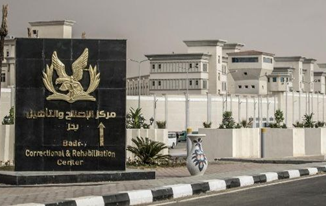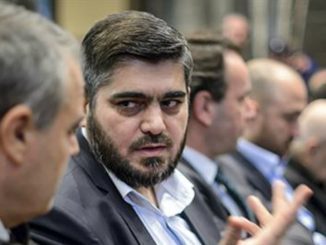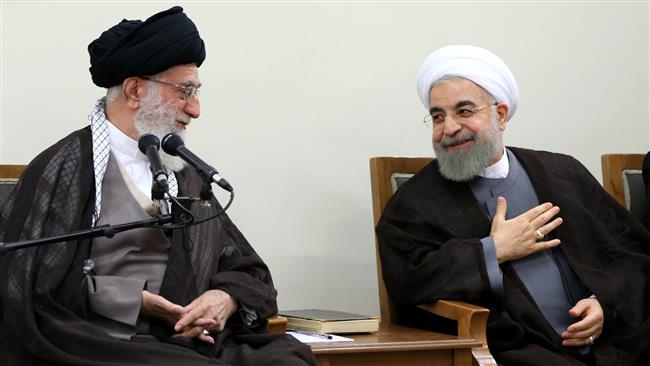
US Defense Secretary James Mattis met with Saudi Deputy Crown Prince Mohammed bin Salman on Thursday and they discussed US-Saudi military cooperation in the fight against Islamic State, the Pentagon said in a statement.
Mattis and Prince Mohammed, who is the kingdom’s defense minister, also discussed “confronting Iran’s destabilizing regional activities,” the statement said.
Saudi-US relations were firmly in the spotlight Tuesday as President Donald Trump hosted Deputy Crown Prince Mohammed bin Salman at the White House for their first official meeting.
The meeting was dubbed a “reset moment” in US-Saudi relations after eight years clouded with differences under the Obama administration over its handling of the Arab Spring, the Iran nuclear deal, arms sales and the war in Syria.
This potential reset is, however, seen as more “transactional” by some, as the Trump administration attempts to engage different stakeholders in the region.
Focus on Yemen
Trump’s working lunch with Prince Mohammed bin Salman, who is also Saudi Arabia’s second deputy premier and defense minister, was in the “Old Family Dining Room” on the State Floor of the White House.
The meeting marks the first official visit to the White House by any Arab leader since Trump took office in January.
Vice President Mike Pence, chief strategist Steve Bannon, senior adviser Jared Kushner, National Security Adviser H.R. McMaster and White House Chief of Staff Reince Priebus were seen in photos in the Oval Office prior to the lunch, according to the White House press pool.
US sources with knowledge of the visit told Arab News that “Yemen is a primary focus” for the meetings, in gauging the Trump administration’s views and ideas for finding a settlement to the war.
Theodore Karasik, a senior adviser to Gulf State Analytics, told Arab News that the Saudi prince’s trip “is broad-ranging, crossing many issues and sectors” and that it sets “the next stage of the US-Saudi strategic relationship.”
Karasik noted, however, the different atmosphere and policy approaches that will face Deputy Crown Prince Mohammed bin Salman on this White House meeting, as compared to those under Obama.
“The Trump approach is different from that under the Obama administration, it is more aggressive and rooted in transactional foreign policy,” Karasik said. He defined the Trump style as “pushing and pulling at the stakeholders to come to some type of solution,” something that comes “with higher risk but greater payoff.”
Higher expectations are being set for US-Saudi relations under Trump, other analysts said.
Andrew Bowen, a visiting scholar at the American Enterprise Institute (AEI), told Arab News that the deputy crown prince’s visit to Washington marks “an opportunity to reset the relationship and put it on better footing after a rough period of relations between President Obama and Riyadh.”
Bowen anticipated a generally better road ahead for US-Saudi relations under Trump, as compared to Obama.
“Trump means business and a deal can certainly be worked out between Washington and Riyadh. Will the Saudis get everything they want? No. Will the relationship fall below their expectations? Probably,” he said.
“A historic turning point”
For his part, a senior adviser to the Saudi Deputy Crown Prince Mohammed gave a statement praising the outcome of the meeting with President Trump, dubbing it a “historic turning point” according to Bloomberg.
“Relations had undergone a period of difference of opinion. However, today’s meeting has put things on the right track, and marked a significant shift in relations, across all political, military, security and economic fields,” the advisor said.
The issue of banning some citizens from six countries from entering the United States of America was discussed and the Saudi position on the front was that Riyadh “does not believe that this measure is targeting Muslim countries or the religion of Islam.”
“This measure is a sovereign decision aimed at preventing terrorists from entering the United States of America. President Trump expressed his deep respect for the Religion of Islam, considering it one of the divine religions that came with great human principles kidnapped by radical groups,” added the source.
Many of the economic files between the two countries have been discussed. They included huge Saudi investments in the United States of America in addition to exceptionally and largely providing American companies with the opportunities to enter the Saudi market.
On the Iran nuclear deal front, Prince Mohammed bin Salman has stressed how bad and very dangerous the nuclear deal is on the region and that it is going to hold the
Iranian radical regime back for a short period of time in their quest for producing a nuclear weapon.
Bloomberg quoted the Saudi senior advisor as saying that “President Trump and the Deputy Crown Prince share the same views on the gravity of the Iranian expansionist moves in the region. Iran is trying to gain its legitimacy in the Islamic world by supporting terrorist organizations with the aim of reaching Mecca, the Qibla of all Muslims, which gives them the legitimacy they lack in the Islamic world.”
“Iran’s support of terrorist organization such as Hezbollah, al-Qaeda, ISIS and others along with its obstructing of any deal to settle the Palestinian issue, as a form of exporting its issues abroad, are nothing but another attempt to the gain the legitimacy it lacks among Muslims.”
Concerning terrorism in the region, both parties agreed that recruitment campaigns carried out by some terrorist groups in Saudi Arabia against Saudi citizens are launched to legitimize these groups. Since the Kingdom is seen as a leading country in the Islamic World, Seat of the Revelation, Land Two Holy Mosques, and the Qibla of all Muslims, which represent an unparalleled legitimacy. In addition to attempting to harm the Saudi strategic relations with the US in particular, and the rest of the world in general.
Prince Mohammed Bin Salman expressed, after the meeting, his satisfaction with the positive attitude and clarifications he heard from President Trump about his stance on Islam, which runs against what the media promoted about the President, stressing that his Excellency President Trump has an unprecedented and serious intention to work with the Muslim World and to achieve its interests and that Prince Mohammed considers his Excellency as a true friend of Muslims who will serve the Muslim World in an unimaginable manner, opposite to the negative portrait of his Excellency that some have tried to promote whether through publishing unjust statements that are taken out of their context or by means of unrealistic media commentaries and analyses about his Excellency.



